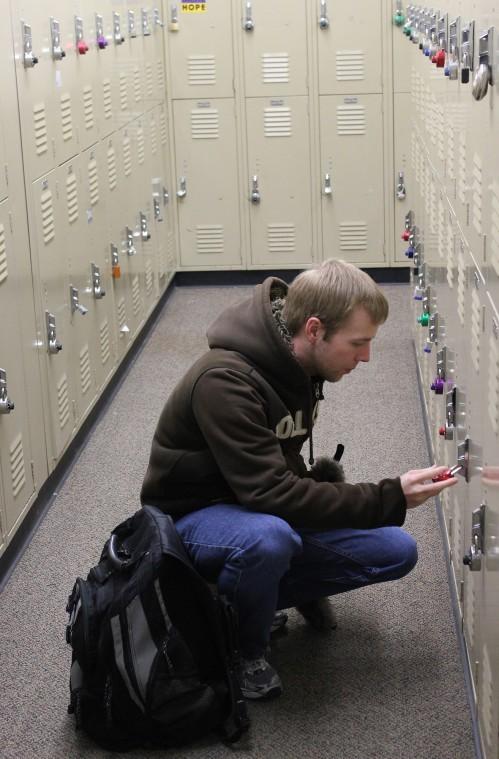College of Law helps law students find job opportunities
Bill Wojnarowski, second year law student, stops at his locker after class in Swen Parson hall Tuesday evening.
January 31, 2012
Students are still able to find job opportunities through the College of Law despite the recent economic recession.
For Eric Kim, first-year law student, the college is a great place to pursue a career.
“All the teachers here are great, I’ve got nothing but good things to say about them,” Kim said. “I feel like I’m getting a pretty solid education in law.”
Finding a job has proven difficult for new law graduates. The overall employment rate for a law school graduate in 2010 was 87.6 percent, the lowest since 1996, according to a National Association for Law Placement (NALP) press release. The “Great Recession” was noted as a cause by NALP Executive Director James Leipold, according to the press release.
The College of Law is able to keep track of the employment success of their graduates through a survey, said Greg Anderson, director of career opportunities and development.
NALP, a governing body for law school placement offices, collects the surveys from law schools and streamlines the results into categories such as race, gender and employment, Anderson said. The placements are calculated nine months after a class graduates.
According to the employment statistics report for 2010, the number of NIU law graduates employed or with a degree was 84.8 percent, lower than the average amount of 89 percent in years past, Anderson said.
The college experienced a lower drop at 75 percent in 2009 when the economic recession hit, Anderson said. The recession affected law graduates because 25 to 30 percent of them get their start in the public sector and the public sector had hiring freezes in 2009, Anderson said.
Anderson said the college had 16 students able to start work as state attorneys in 2005. In 2009, only two students were able to start work as state attorneys.
“We’re such a small school that even if only a couple are unemployed, our percentages start dropping,” he said.
One of the challenges for the college is persuading law firms to hire graduates who are brand new and without much work experience, Anderson said.
Yet the college offers students a lot of opportunities to make themselves more marketable, Anderson said. Networking, volunteer work, internships, externships and meetings with legal professionals are some of the ways students can succeed.
Networking is especially helpful for graduating students in getting jobs. Forty percent of graduates receive jobs through networking, Anderson said.
Former NIU law student Amanda Hamilton said she found the college and its professors excellent. She said she has been very blessed in finding work in her field and she recommends student work as a clerk to gain experience.
In this economy, it is important for students to make a personal connection and get themselves out there, said Nicholas Carrescia, second-year law student.
Kim said students come to NIU’s College of Law because it is more affordable than private colleges.
“That’s a reason why people choose to come here: Because the state tuition is a lot cheaper than most places,” Kim said.



